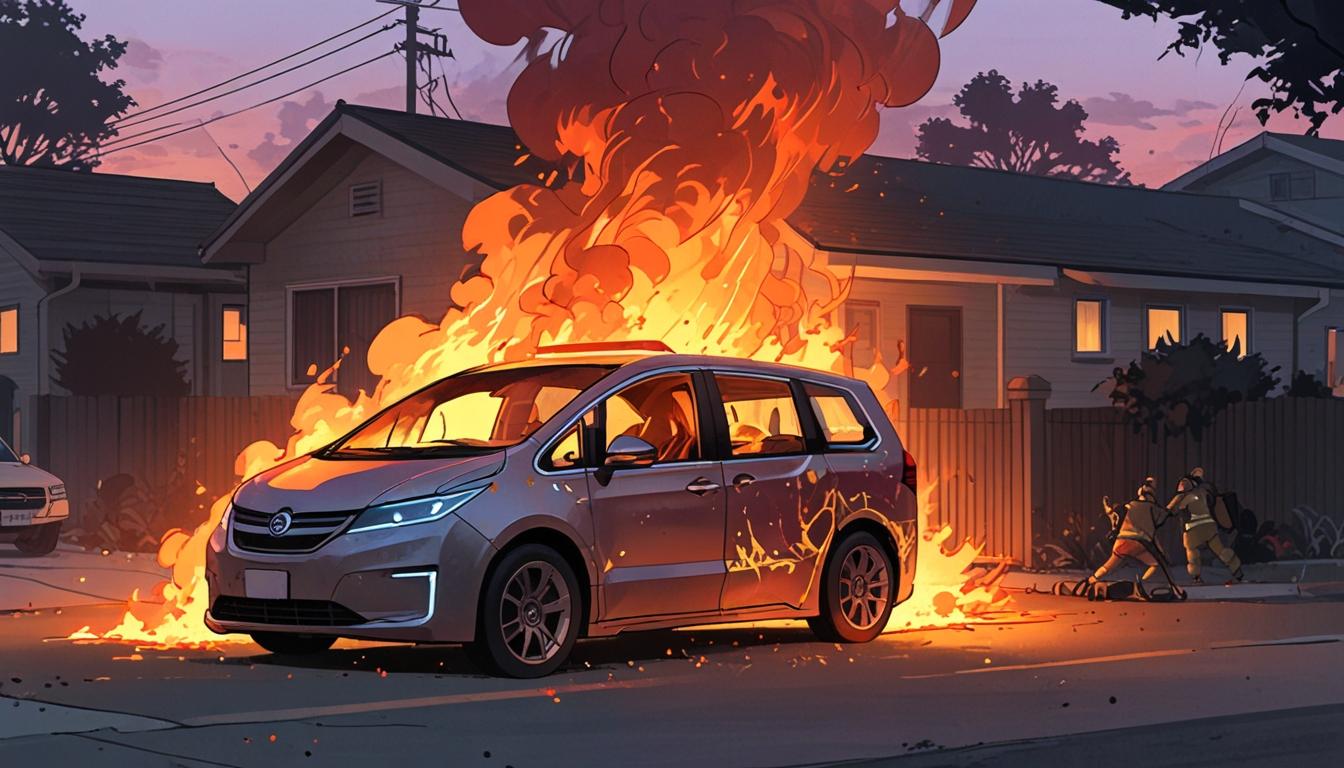In a distressing incident early this morning, an electric vehicle unexpectedly ignited while charging on a driveway in Chandler's Ford, Hampshire. Captured on CCTV, the fire quickly escalated into a rampant blaze, resulting in significant damage to not only the car but also a nearby family van and the front of the house. The fire broke out around 5am, leaving behind charred remains and destruction estimated at hundreds of thousands of pounds.
Residents of the quiet neighbourhood witnessed the terrifying scene unfold as flames engulfed the driveway. One neighbour remarked on the panic of the moment, noting, “Flames were coming out the door and window. I was frightened for the young family.” Fortunately, the family residing at the property managed to escape without injury. A spokesperson from Hampshire Fire and Rescue confirmed that firefighters from three stations battled the fire, emphasising that no casualties were reported, although the electricity, gas, and water supplies were promptly isolated for safety.
This incident is not isolated; electric vehicle fires have been increasingly reported across various regions. For instance, just last month in Wareham, Massachusetts, a parked electric vehicle spontaneously caught fire in the early morning hours, necessitating a response that involved extinguishing the flames multiple times due to re-ignition. Firefighters ultimately used over 11,000 gallons of water to bring the conflagration under control, highlighting the particular challenges posed by fires in electric vehicles.
Similar occurrences have been recorded elsewhere. In La Habra, California, two electric vehicles were completely destroyed by a fire that erupted in their driveway, resulting in extensive flames but, fortunately, no injuries. A similar event in Norfolk, Virginia, displaced four residents when an electric vehicle fire spread to the home, showcasing the potential dangers associated with these modern vehicles.
Experts warn that while electric cars are often lauded for their environmental benefits, the risks associated with their lithium-ion batteries must not be overlooked. Unlike conventional vehicle fires, which may be extinguished with typical firefighting techniques, electric vehicle fires can reignite and intensify unexpectedly, making them particularly volatile.
As the use of electric cars continues to rise, insurance providers and fire safety experts are advocating for enhanced safety measures and protocols. Investigations into the underlying causes of these fires are ongoing, with authorities focusing on preventative strategies that could mitigate future incidents. The recent trends in these fires bring to light the urgent need for improved safety standards in electric vehicle manufacturing and design.
In conclusion, while electric vehicles offer substantial advantages, incidents like these underscore that their operation is not without significant risks. Homeowners and potential buyers must remain informed about the implications of charging these vehicles safely and the necessary precautions to take, ensuring that such fiery incidents become less common in the future.
Reference Map
- Paragraphs 1, 2, 3
- Paragraphs 4, 5
- Paragraphs 6, 7
- Paragraph 8
- Paragraphs 9, 10
Source: Noah Wire Services
